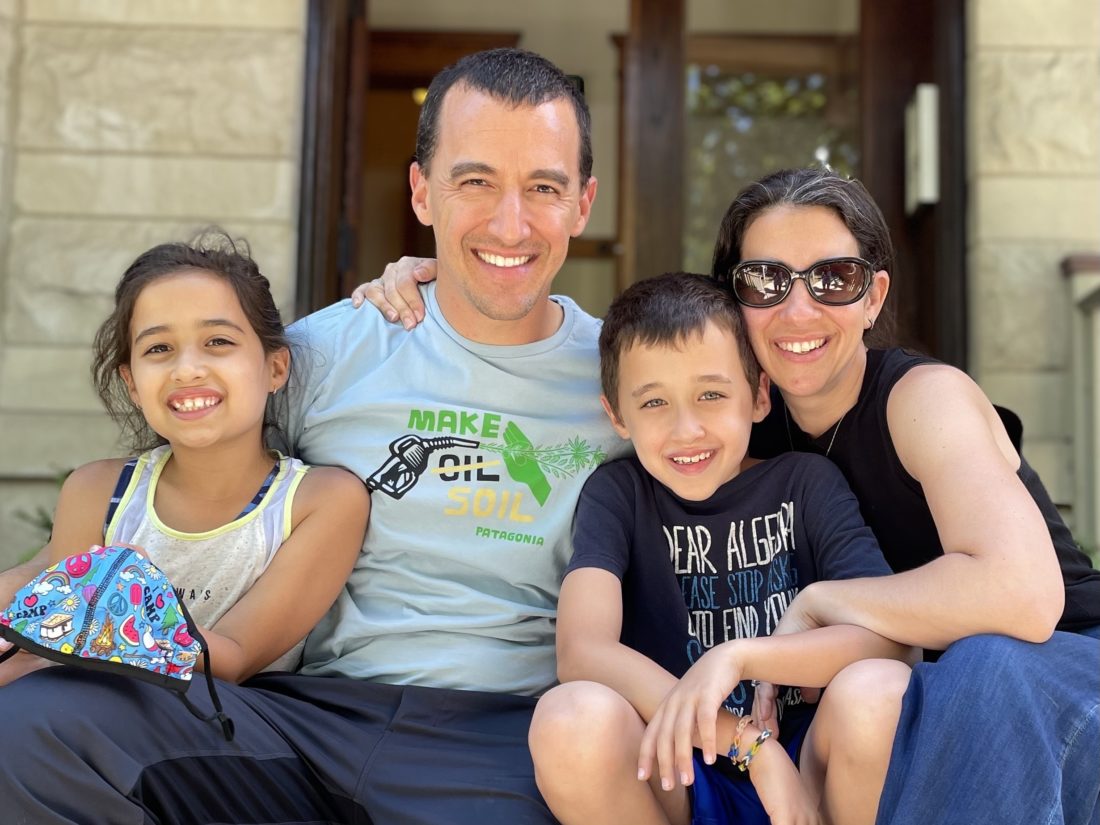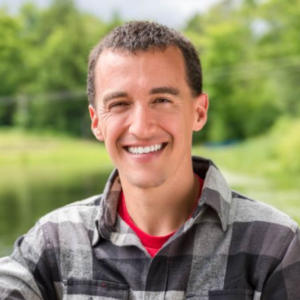
As some of you may already know, Marc Altman joined Clean Energy Trust in early 2021 as our first-ever Director of Development. Now, nearly six months into his new role, we thought we’d introduce him to those of you in our innovation ecosystem who haven’t met him already (and share a few little known facts about him with those of you who have).
Based in Chicago, Marc recently moved to the Lakeview neighborhood with his wife and 9-year-old twins after a decade in Andersonville. With his kids done with the school year and dropped off at summer camp in Michigan, Marc had a chance to answer our questions about what excites him most about Clean Energy Trust, why he enjoys development work, and what motivates him to keep doing great work. While starting a new job remotely during a pandemic wasn’t exactly the plan, Marc is always up for a challenge and is gradually meeting the entire Clean Energy Trust team and our supportive ecosystem.
What did you find particularly interesting about Clean Energy Trust prior to joining the organization?
I’ve loved the outdoors for as long as I can remember. Whether I’m actively camping, hiking, rock climbing, cycling, sailing, or just enjoying a relaxing stroll, picnic, or outing to the beach — the natural world calms my mind and soothes my soul.
For most of my adult life, I’ve harbored a latent sense of dread about humanity’s impact on the environment. The more I learned about the accelerating rate of climate change, the more my dread grew. Eventually, it became so significant that I felt frozen into inaction. How could anything I do have a broad enough scale to make a real impact on climate change?
Clean Energy Trust is the first organization I found that gives me that sense of impact and scale. By working with our generous supporters to invest in a wide range of early-stage innovations that are targeting climate change, I feel a tangible sense of making a difference in the greatest challenge of our lifetime (and, at the risk of melodrama, in the history of humanity).
Now that you’re 6 months in, what have you learned?
Three big learnings come to mind:
First and foremost, all of the folks that I work with — from colleagues and board members to donors and foundation partners — are amazing. Passionate, dedicated, intelligent. And fun!
Second, the niche that Clean Energy Trust fills is much more clearly defined than I expected. When I finally grasped the scale of the need in comparison to the available investment funds, I understood there was a market failure for climate innovation. The economist in me knows that markets do a lot of things very well… and have very real failures that can create disproportionate consequences.
Early-stage cleantech investment, particularly in the Midwest, is a glaring example of market failure. Pitchbook reports that of the $1.03 trillion of US venture capital invested in the last decade, only 7% went towards cleantech, and less than 1% in the earliest stages, most of which was concentrated on the coasts. The greater Midwest region received just $180 million – less than 0.02% of the invested funds!
The problem is that traditional investors don’t have the risk tolerance or patience needed for these innovations to mature, commercialize and scale. Investors have revenue obligations that force decisions away from unproven, yet potentially critical climate innovations. Yet experts say that to fully decarbonize and implement the climate change solutions we need before 2050, we need to substantially expedite the commercialization of climate technologies by 2030. Which means we need to invest more heavily now.
It took me a while to fully grasp the concept of consolidating donations to potentially make money off investments. But now I see how important it is to fill the funding gap with risk-free philanthropic capital. And I’m proud to support Clean Energy Trust’s goal of investing money in this critical area of need and addressing a substantial market failure.
And third, onboarding in a remote pandemic environment was an interesting new way to get to know an organization.
What were you doing before joining Clean Energy Trust?
I’ve had a squiggly career path. (Others might prefer to use a more professional phrase like “non-linear” or “portfolio career,” but squiggly works best for me.)
That squiggliness has been driven by a number of factors. Half of my brain thinks and processes the world through numbers. The other half of my brain houses a strong creative outlook and design-oriented mindset. Underlying both divergent strengths is a deep-seated sense of empathy and an insatiable desire to have a positive impact on my work.
Combine all of that into one career and you end up with a wonderful (and perhaps slightly dizzying) variety: running corporate fraud investigations as a financial consultant at PricewaterhouseCoopers, building a creative photography enterprise, managing design and marketing client projects, and now building non-profit development programs to raise philanthropic funds. Phew!
What’s your unique approach to development?
I’m still surprised by how much I enjoy development work. But in hindsight, it makes a lot of sense for my disparate skills, interests, experiences, and passions.
More than anything, I revel in the problem-solving nature of the work. I love building relationships with passionate people and hopefully helping them find ways to support the causes they care about in a capacity that makes sense for them. It feels like I’m solving a puzzle: meeting new people, learning about their passions and beliefs, identifying opportunities for them to make a difference, and connecting them with the organizations that are doing important work and need their support.
I’m honored to be the first development role focused on philanthropy at Clean Energy Trust. Just as the organization strives to be a catalyst for our portfolio companies and the broader climate tech ecosystem, I see my role as catalytic to growing the impact that Clean Energy Trust has on our community of climate innovators. Along with building a fundraising function, part of my focus is on translation. While we tend to invest in highly esoteric corners of the industry, we need to effectively communicate the importance of that work to a broader, less technically-oriented audience.
What’s something that fundamentally influenced the trajectory of your life?
I was born in South Africa and moved to the USA when I was two years old. Between visiting family around the world and a personal travel urge, I’ve visited over 40 countries so far.
Like many others, my travels laid the inspirational foundation for why I crave a positive impact in my work. I experienced first-hand the stark contrast between excessive affluence in developed countries and abject poverty in developing countries. That divide highlights the disproportionate impact climate change has on those least able to mitigate its effects.
What keeps you active and challenges you?
I enjoy yoga, meditation, rock climbing, and my Peloton. I played ultimate frisbee as an undergrad at Brown University, and I’m proud of the tiny role I had in helping the program’s top team win the national championship my sophomore year. I’m an avid reader, an aspiring gardener, and having grown up in St. Louis, it should be no surprise that I’m a big Cardinals and Blues fan (even after 20 years in arch-rival territory).

. . .
To learn more about Marc, we welcome you to reach out to us at info@cleanenergytrust.org and we’ll connect you with him.
Read more of Clean Energy Trust’s news and perspectives on Medium.